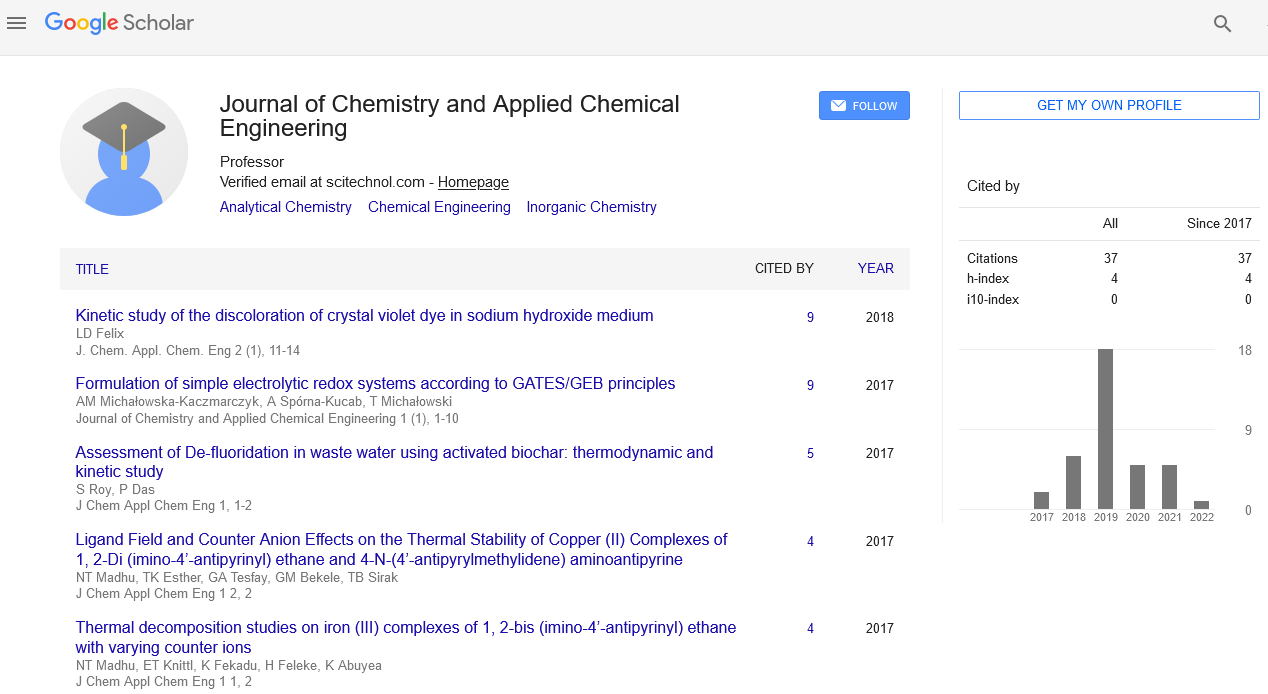A fractal model for threshold pressure gradient of tight oil reservoirs
Xiuyu Wang
China University of Petroleum, China
: J Chem Appl Chem Eng
Abstract
In tight oil reservoir, the flow channel of fluids is tiny and the boundary layer effect is obvious, resulting in large flow resistance and high threshold pressure gradient. A fractal model for calculating the threshold pressure gradient of tight oil reservoir is established considering the fractal dimension of the pore throat and the tortuosity. In this model, the rock is considered as a capillary bundle with different diameter distribution as obtained from high-pressure mercury injection measurements for tight rocks. The mathematical model expresses the fractal threshold pressure gradient as a function of ultimate shear stress (η0), pore throat fractal dimension (Df), tortuosity fractal dimension (DT), the maximum pore radius (rmax), the characteristic length of the core (L0) and the connate water saturation (Swi). For 27 tight cores obtained from changing oilfield, threshold pressure gradients were determined using the established model and compared with experimental results and a good fit was found especially for the rock with lower permeability. The relative error is less than 14% for all the rock tested and is only 1.77% for the cores with permeability in the range of 0.001~0.01mD. This model has the advantage of being able to check the impact of the connate water saturation on the threshold pressure gradient of tight rock, which is usually neglected in previous work. The results show that higher Swi results in largely increased threshold pressure gradient. This fractal model is of great importance in studying of the mechanism of tight oil flow in porous media.
Biography
Xiuyu Wang has completed her PhD and Postdoctoral Studies from the University of Wyoming, China. She is currently an associate professor of Department of Petroleum Engineering at China University of Petroleum in Beijing.
E-mail: wangxiuyu@cup.edu.cn
 Spanish
Spanish  Chinese
Chinese  Russian
Russian  German
German  French
French  Japanese
Japanese  Portuguese
Portuguese  Hindi
Hindi 